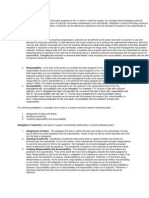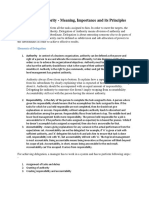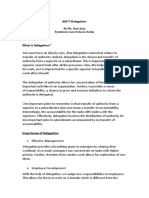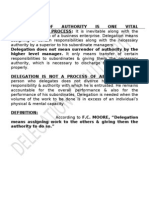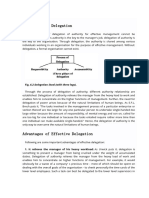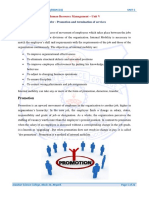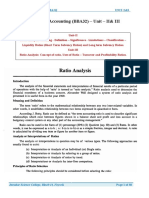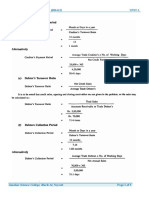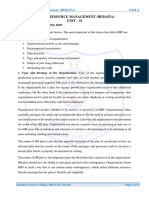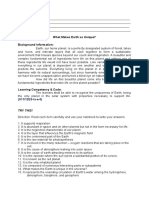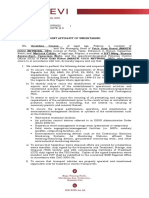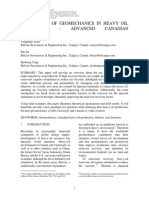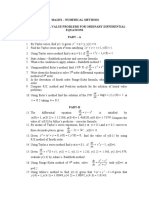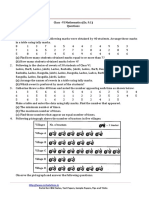0% found this document useful (0 votes)
169 views4 pagesPrinciples of Management Study Notes Unit 5
This document discusses the key concepts of authority, responsibility, and accountability in management. It defines authority as the right to make decisions and command subordinates, while responsibility refers to the obligation of subordinates to perform assigned duties. Accountability means being liable for failures to properly delegate responsibility. The document also distinguishes delegation from responsibility, noting that while managers can delegate authority, they cannot delegate responsibility for tasks. It explores difficulties in delegation such as fears of losing control or subordinates performing better. Overall, the document provides definitions and distinctions between important management concepts.
Uploaded by
T S Kumar KumarCopyright
© © All Rights Reserved
We take content rights seriously. If you suspect this is your content, claim it here.
Available Formats
Download as PDF, TXT or read online on Scribd
0% found this document useful (0 votes)
169 views4 pagesPrinciples of Management Study Notes Unit 5
This document discusses the key concepts of authority, responsibility, and accountability in management. It defines authority as the right to make decisions and command subordinates, while responsibility refers to the obligation of subordinates to perform assigned duties. Accountability means being liable for failures to properly delegate responsibility. The document also distinguishes delegation from responsibility, noting that while managers can delegate authority, they cannot delegate responsibility for tasks. It explores difficulties in delegation such as fears of losing control or subordinates performing better. Overall, the document provides definitions and distinctions between important management concepts.
Uploaded by
T S Kumar KumarCopyright
© © All Rights Reserved
We take content rights seriously. If you suspect this is your content, claim it here.
Available Formats
Download as PDF, TXT or read online on Scribd
/ 4
